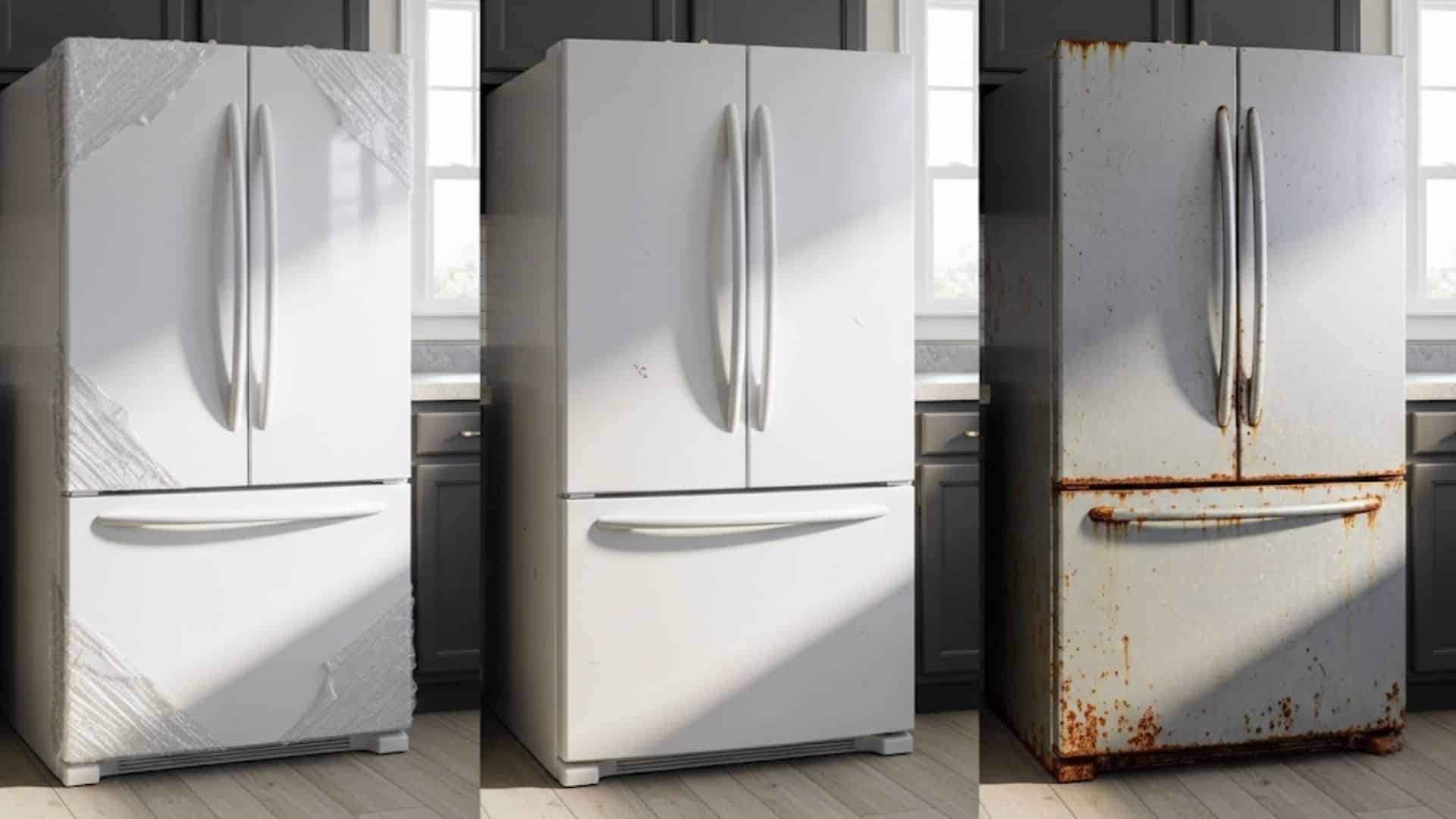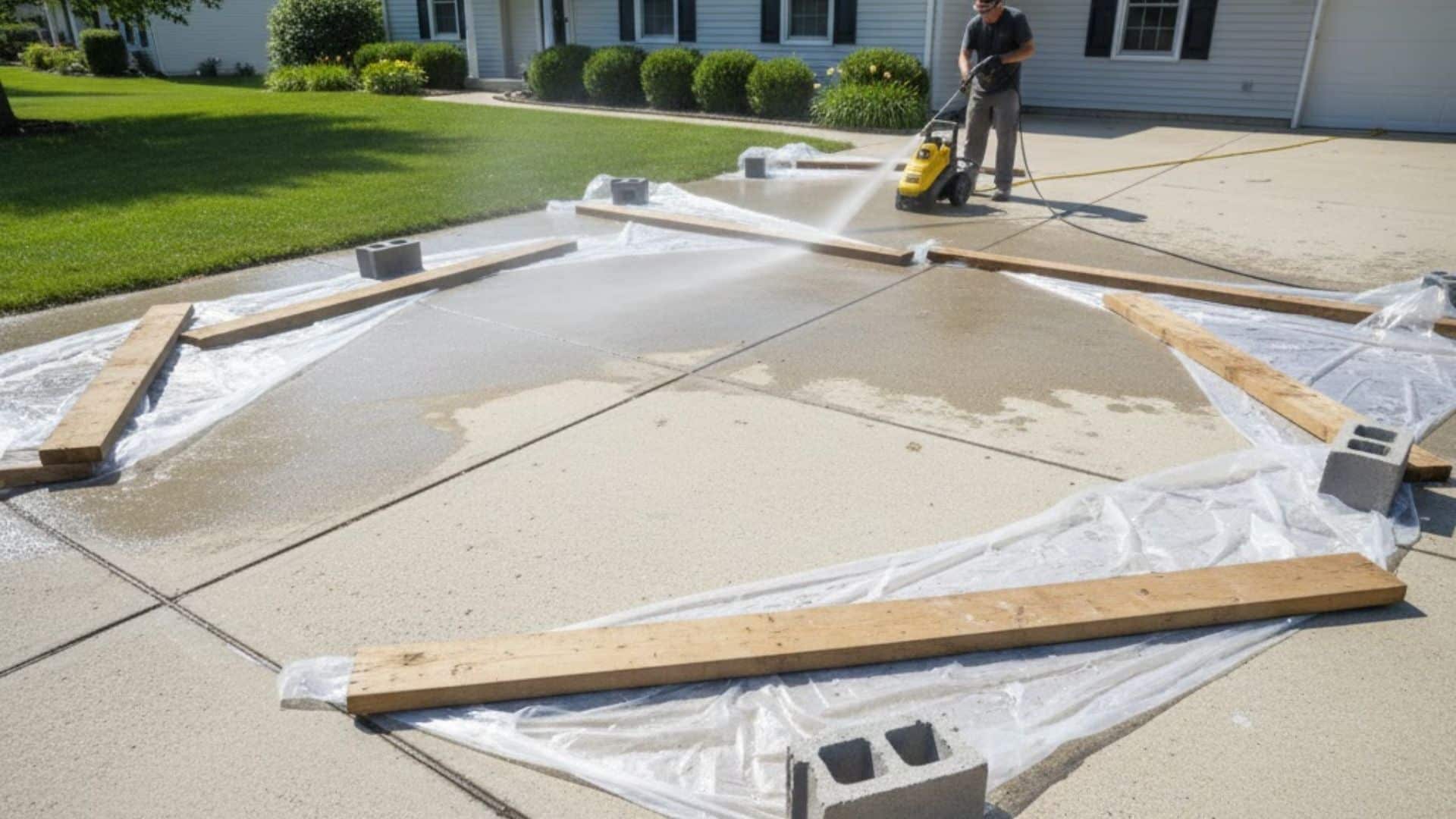Are you thinking about replacing your kitchen’s hardest-working appliance, but don’t know when the right time is? The question of how long refrigerators last affects every household budget and kitchen planning decision.
I know that buying a new fridge is expensive, so timing your purchase correctly saves you money. Most people wait until their refrigerator completely dies before shopping for a replacement, which creates unnecessary stress.
Learning about appliance lifespans helps you budget properly and choose the best model for your family’s needs. I want to help you learn when to repair versus replace your current fridge.
You’ll find maintenance tips that extend appliance life and save you thousands of dollars over time.
Lifespan is Key for Your Refrigerator
Understanding how long your refrigerator will last helps you plan and save money for future purchases. Most fridges work well for many years, but they don’t last forever like some people think.
Knowing your fridge’s expected lifespan allows you to start saving money early for a replacement. Older refrigerators use much more electricity than newer models, which means higher monthly energy bills for you.
As fridges age, they also struggle to maintain food at safe temperatures, which can cause your groceries to spoil more quickly.
Planning ahead for appliance replacement prevents the stress and expense of emergency shopping when your appliance suddenly breaks down. You’ll have time to research good deals and choose the best model for your family’s needs.
How Long Do Refrigerators Last?

The U.S. Department of Energystates that most refrigerators last approximately 12 years when properly maintained.
Regular refrigerators typically last between 10 and 18 years, depending on their usage. Compact or mini-fridges typically last 4 to 12 years, as they’re smaller.
Built-in refrigerators are considered the longest lasting refrigerators, with some high-quality models lasting over 20 years when properly maintained.
Regular cleaning and ensuring air flows around your fridge help it run more efficiently and last longer.
Knowing these time ranges helps you plan ahead for repairs or purchasing a new fridge without any surprises.
Factors that Affect Refrigerator Lifespan
I’ve noticed that several things can make your refrigerator last much longer or break down much sooner than expected. Here are the main factors that determine how many years you’ll get from your fridge:
1. Brand and Build Quality
Premium brands may cost more upfront, but they often last much longer than cheaper models. These high-end fridges utilize superior parts and materials that can withstand years of daily use without malfunction.
The saying “you get what you pay for” really applies when buying major appliances like refrigerators.
2. Usage Habits
How you use your fridge every day makes a big difference in how long it will last. Opening the door too often makes the motor work harder to keep things cold, which wears it out faster.
Cramming too much food inside blocks air flow and forces the compressor to run more often than normal. Storing hot food directly in the fridge also makes the motor work overtime to cool everything down properly.
3. Environment and Placement
Where you put your refrigerator affects how hard it has to work to stay cold every day. Placing it in an uninsulated garage or basement makes the motor work harder during hot or cold weather.
High-humidity areas can cause parts to rust or wear out faster than they would in normal conditions. Keeping your fridge away from heat sources, such as ovens or direct sunlight, helps it run more efficiently.
4. Technology and Features
Smart refrigerators with lots of electronic features might not last as long as simple, traditional models. More technology means more parts that can break down over time, leading to expensive repair bills.
Traditional fridges with fewer electronic components often work reliably for many years without major problems. However, newer models are usually more energy efficient, which can save money on electricity bills over time.
Comparing Refrigerator Lifespan by Brand
Different refrigerator brands have different expected lifespans based on their build quality and design features.
Looking at popular brands helps you make better choices when shopping for a new fridge:
| Brand | Average Lifespan (years) | Notes |
|---|---|---|
| Whirlpool | 14–17 | Known for its rugged build and simple design |
| GE | 13–16 | Durable with modern features |
| LG | 13–15 | Energy efficient with advanced tech |
| Samsung | 10–14 | Sleek design; more tech can mean more repairs |
| KitchenAid | 12–15 | Reliable with strong construction |
| Bosch | 14–19 | High-end, durable appliances |
| Frigidaire | 10–15 | No-frills, reliable performance |
These numbers are averages, so your actual results may vary depending on usage and maintenance habits. Keep in mind that proper care can help any brand last longer than expected.
Signs Your Refrigerator is Dying
Your refrigerator usually gives you warning signs before it completely breaks down and stops working forever.
Watching for these common problems can help you decide whether to repair or replace your fridge:
- Food spoils too quickly when your milk, meat, and vegetables go bad much faster than they used to.
- Runs constantly or cycles oddly, never stopping, and makes weird clicking sounds all day.
- Strange noises or complete silence when you hear loud grinding, buzzing sounds, or the fridge becomes completely quiet.
- The exterior feels hot when the sides and back of your refrigerator feel much warmer than normal to the touch.
- Frost, leaks, or condensation problems occur when ice builds up inside or water pools around the bottom of your fridge.
Most of these problems mean your refrigerator is working much harder than it should to stay cold.
Spotting these warning signs early gives you time to shop for a replacement before your fridge dies.
Repair vs. Replace: Choosing What’s Best

When Replacement Makes Sense
If your refrigerator is 10–12 years old or older, replacement is usually the smarter choice.
At that age, major components, like the compressor, can fail, and replacing them often costs half the price of a new fridge. In these cases, investing in a new unit is more economical and practical.
When Repair is Worth It
For fridges that are less than 8 years old and only have minor issues, repairs are generally worthwhile.
Not only do you avoid the upfront cost of a new appliance, but newer fridges are also more energy-efficient, which means lower monthly utility bills compared to older models.
How to Make Your Refrigerator Last Longer
Simple maintenance tasks can add years to your refrigerator’s life and save you thousands of dollars. Following these easy steps takes just a few minutes but makes a huge difference:
- Clean the coils of your fridge twice a year to help it run more efficiently and use less electricity.
- Maintain an optimal fill level by avoiding empty fridges and overstuffing them with too much food.
- Check door seals regularly for cracks or damage that lets cold air escape from inside.
- Maintain proper temperature settings between 37°F and 40°F for the main compartment and 0°F for the freezer.
- Use surge protection for smart fridges to protect expensive electronic parts from power spikes and outages.
These maintenance habits are easy to remember and don’t cost much money to do regularly. Taking care of your fridge now prevents expensive repairs and keeps it running smoothly for many years to come.
Eco-Friendly Disposal and Recycling
Old refrigerators contain harmful chemicals called CFCs that damage the ozone layer if not disposed of properly.
These fridges also waste energy in landfills and contain valuable metals that can be recycled into new products.
You can’t just put your old fridge on the curb because it needs special handling by trained professionals.
Many appliance stores offer trade-in programs where they take your old fridge when delivering a new one. Utility companies sometimes offer free pickup and recycling services, and they may also provide a refund.
Local recycling centers also accept old refrigerators and safely remove all the harmful chemicals before breaking them down. Always choose responsible disposal methods to protect the environment.
Conclusion
The question of how long refrigerators last empowers you to make better decisions about your kitchen appliances.
I hope you now feel confident about spotting warning signs and planning your next refrigerator purchase wisely. Remember that proper maintenance adds years to any fridge’s life, regardless of the brand you choose.
Smart shopping based on lifespan knowledge prevents emergency purchases and helps you find better deals on appliances. Your refrigerator works hard every day, so taking care of it pays off with lower energy bills.
When the time comes for replacement, choose responsible recycling options that protect our environment for future generations.
What’s your experience with refrigerator lifespans or maintenance tips? Share your thoughts in a comment below!








